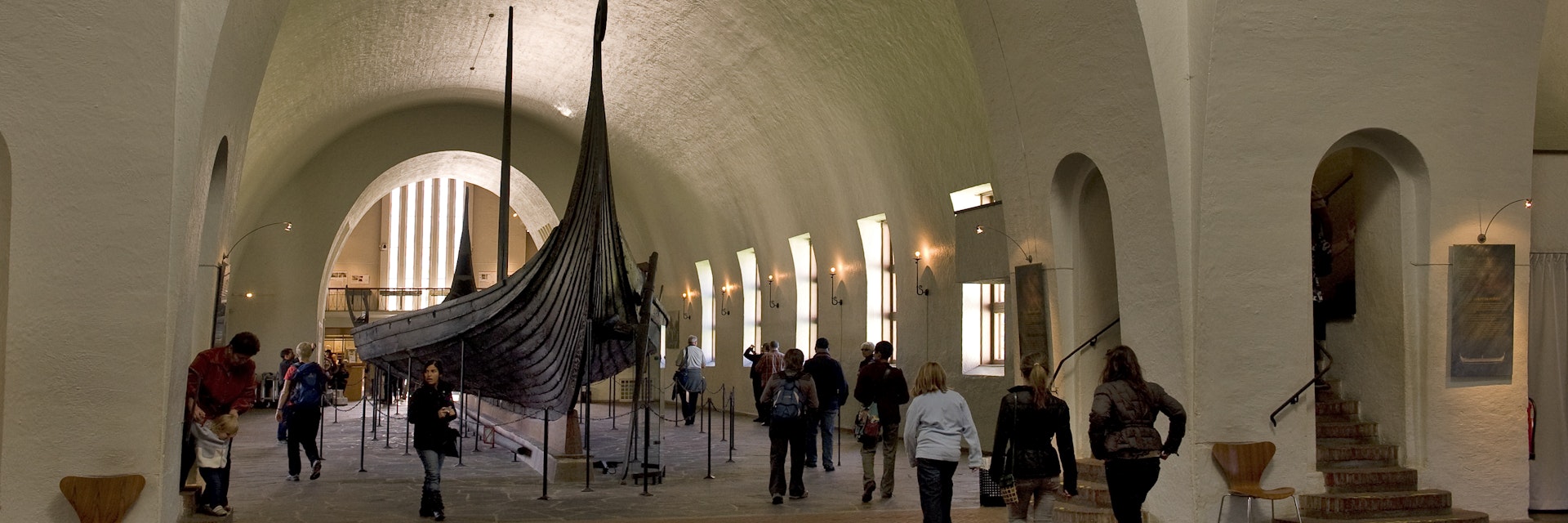Around 1100 years ago, Vikings dragged up two longships from the shoreline and used them as the centrepiece for grand ceremonial burials, most likely for important chieftains or nobility. Along with the ships, they buried many items for the afterlife: food, drink, jewellery, furniture, carriages, weapons, and even a few dogs for companionship. Discovered in Oslofjord in the late 19th and early 20th centuries, the ships and their wares are beautifully restored, offering an evocative, emotive insight into Viking life.
There are three ships in total, all named after their places of discovery: Oseberg, Gokstad and Tune. The most ostentatious and intimidating of the three is the Oseberg. The burial chamber beneath it held the largest collection of Viking-age artefacts ever uncovered in Scandinavia, though it had been looted of its jewellery. As daunting as the ship appears, it was probably only ever intended as a royal pleasure craft. The sturdier 24m-long Gokstad, built around 890, is the finest remaining example of a Viking longship, but when it was unearthed its corresponding burial chamber had also been looted and few artefacts were uncovered. There is also the third, smaller, boat, the Tune, which is fragmentary but what remains is incredibly well preserved.
A free audioguide is available to download as a smartphone app.
Please note: This attraction is closed for renovations until 2026
